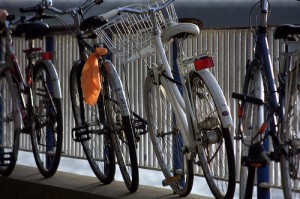Classes are ending this week. In four days’ time I will retreat to my cave and start cramming for my four final exams. This is going to be a tough week. Unlike last semester, where the bulk of my schoolwork was completed long before the end of classes, this time around I will be completing projects, assignments and presentations right up to the bitter end. This will leave me precious little time, just a few days, to finish my readings and start preparing for finals.
The spring is nearly over, but I am a long way away from being finished. This June, the first summer session, my last semester at UT, will begin. It will be only five weeks of classes, but if last summer was any indication, it will feel much longer. But, even when I finish my summer classes in July, I will be done with the MPA program but not done with school. To meet the requirements for the CPA exam in Texas, I am still on the hook for six to nine business-related credits.
Texas is one of strictest states in terms of CPA exam requirements. I came into the MPA program having taken no business classes outside of the MPA pre-enrollment requirements. This year, my schedule has been completely jammed with core accounting courses, and I never had the chance to mop up the rest of the business classes I needed to meet Texas’s 24 credit hour requirement. So, after my classes at UT are done this summer, I’ll be on the computer completing my last couple of business classes by correspondence.
When that’s over, the CPA exam will be up next. I am planning to have all of my classes done and my paperwork completed by August so that I can sneak in one section of the exam before by job begins. After that, I will try to have two more sections done by the end of October, my first month of work. Here is a list of CPA exam dates. As you can see, the exam is offered on a two-months-on, one-month-off schedule. Unfortunately, the best month for me, September, is an off month for the exam. When the CPA exam is completely done–by December perhaps–I may try my luck with one more certification before I allow myself to pop the champagne cork.
Clearly, I have a lot to look forward to. When I finish my master’s degree this summer, it will be just one more leap forward on my way to the finish line.
Wish me luck!

